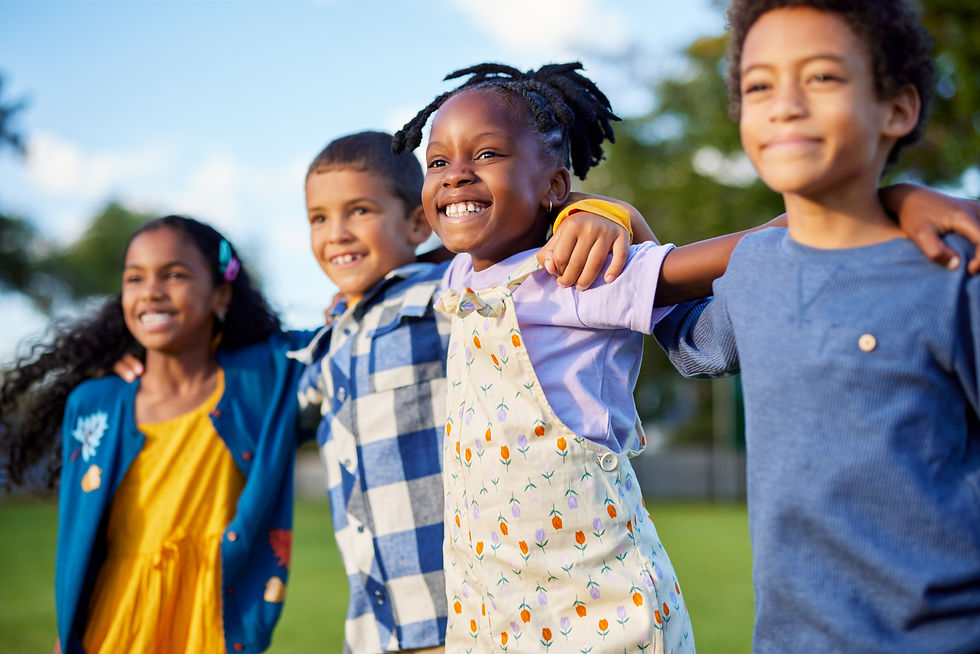Sudden Loss
- Yasmine Atamna

- Jul 7, 2023
- 3 min read

Grief is described as a natural human response to the loss of a loved one. Although there are many definitions to explain the physical and psychological toll grief takes on an individual, I have learned that every human being creates their own meaning of grieving. In October of 2022, I experienced the loss of my closest friend due to a sudden and tragic accident. I could only describe her as having the most caring heart I’d ever encountered in a friend. Oddly enough, the first week following her passing felt the “easiest”, as I was stuck in the denial stage of the grieving process. At this time, I learned the psychological difference between anticipated grief and sudden loss, as unexpected tragedies leave you with a range of emotions, including anger, confusion, and pain. Unlike anticipated grief, with sudden loss the grief is not greater, but the ability to cope is greatly reduced. I felt disconnected to the reality I once knew, my friends/family, and my own feelings and emotions. I received the tragic news in the middle of the week, during midterms, and all I could do is question the reality of the situation.
Many people know the stages of grief include denial, anger, bargaining, depression, and acceptance; but the stages themselves are not gone through sequentially. Individuals can pass through the stage of bargaining and enter depression but return to anger before reaching acceptance. In my case, I spent the first few months experiencing denial alone. After visiting her grave enough times, and seeing her name written on her tombstone, I was able to accept the fact that my best friend was not coming back. After the reality of her no longer existing had settled, my heart felt numb and incomplete. In this next stage, I knew it was time to reach out for help. I tried being more receptive to friends, loved ones, and completing activities that I once loved. However, I quickly noticed that none of these activities seemed to work. It was as if I had become a stranger to myself, unable to satisfy my needs or feel any true happiness. I began taking a different approach with utilizing campus psychological services along with searching for tailored resources online for bereaved individuals. I found a compilation of guides, including common emotions and reactions, as well as mental health help, which helped me to further understand and feel less alone in the situation. I also benefited from reading and sharing The Recovery Village’s “How to Help A Grieving Friend” article, as close friends and family would often ask what they can do to help. Another valuable resource was Our House Grief Support Center’s Grief Pages, categorized by the griever themselves and the relationship between them and the deceased. This site was especially helpful as it mentioned relevant, but difficult internal decision making, such as posting your grief on social media. Personally, an area I feel that has been greatly affected by this loss has been my judgment and awareness of long-term consequences (prefrontal cortex). Once losing the closest person I had in my life, it was as if my brain decided that there was no need to plan or think through any of my decisions, because we could all pass at any time. I still find myself alternating from extreme waves of anxiety to extreme apathy and a lack of care in decision making, but The Grief Pages, and literature like The Body Keeps Score, help bring me back to reality.
Today, almost nine months later, I’m still moving on from the situation, but I have made progress in restoring meaning and purpose in my life. You never truly “get over” grief; you learn to grow around the loss, rediscover yourself as an individual, and hopefully learn to become present in daily activities again. In my religion, we believe we are reunited with loved ones in the next life, so I do my best to remind myself that although our story may have ended abruptly in this life, our friendship will live on in the next.
"Death leaves a heartache no one can heal, love leaves a memory no one can steal." -From a headstone in Ireland
Author Bio: My name is Yasmine Atamna and I recently graduated from Emory University's Rollins School of Public Health with an MPH. I am currently finishing an internship with Resilient Georgia as a Health Education Intern before starting as a Healthcare Consultant at Knowledge Capital Group. I'm very passionate about the intersection of behavioral health and public health, the healthcare industry as whole, and increased health education resources to underserved populations.





Comments